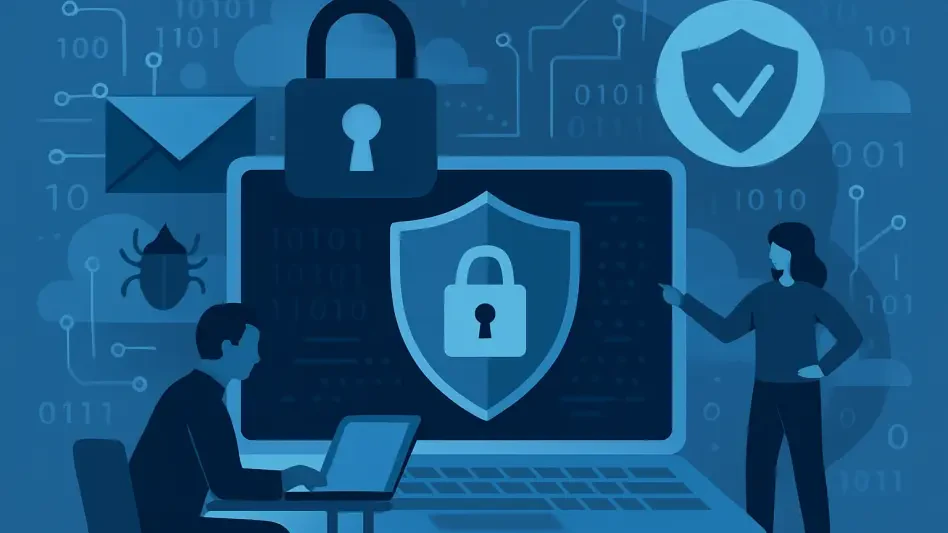In an era where digital connectivity shapes nearly every aspect of daily life, Ghana finds itself grappling with the dual forces of opportunity and vulnerability, as millions of citizens engage online for business, education, and social interaction. With a staggering 70% internet penetration rate, translating to 24.3 million users, and nearly 8 million active on social media platforms, the nation stands as a leader in digital adoption across the continent. However, this progress comes at a steep price, as cybercrime continues to inflict significant financial and social damage. The launch of the National Cyber Security Awareness Month (NCSAM) at the Ghana Investment Promotion Centre Auditorium marks a pivotal moment to address these challenges head-on. Spearheaded by the Minister for Communication, Digital Technology and Innovations, Samuel Nartey George (MP), this initiative under the theme “Building a Safe, Informed, and Accountable Digital Space” seeks to rally collective action against escalating cyber threats.
Addressing the Digital Dilemma
Rising Threats in a Connected Nation
As Ghana cements its position as a digital hub with a remarkable ranking of 15th globally in social media adoption, the darker side of this connectivity becomes increasingly apparent through staggering financial losses due to cybercrime. Reports indicate that the nation suffered losses amounting to GHS 23.3 million in the previous year, with an additional GHS 14.9 million lost in just the first half of this year alone. These losses stem primarily from online fraud, blackmail, and unauthorized access to personal and institutional systems. Such figures underscore a pressing need for robust cybersecurity measures that can keep pace with the rapid expansion of digital engagement. The urgency to protect users is not merely a technical concern but a societal imperative, as the consequences of these crimes ripple through communities, eroding trust and financial stability in an otherwise thriving digital landscape.
The Human Cost of Cyber Vulnerabilities
Beyond the monetary impact, the human toll of cyber threats in Ghana paints a sobering picture of the risks embedded in a hyper-connected society. Cyberbullying, which accounts for 25% of reported incidents, alongside online blackmail at 14%, reveals how digital platforms can become tools for personal harm and exploitation. The rise in disinformation and deepfake manipulation further compounds these issues, as false narratives spread rapidly, damaging reputations and sowing discord. A poignant example shared during the campaign launch highlighted how even prominent individuals are not immune to such attacks, with social media being weaponized to spread harmful falsehoods. This reality emphasizes that cybersecurity is not just about protecting data but also about safeguarding dignity and trust in digital interactions, making public education a cornerstone of the ongoing national effort.
Collaborative Solutions for a Safer Future
Government and Enforcement Actions
In response to the mounting cyber threats, the Ghanaian government has demonstrated a firm commitment to bolstering digital security through legislative and enforcement strategies. Plans to amend the Cybersecurity Act, 2020 (Act 1038), aim to strike a balance between fostering innovation and ensuring user safety in an evolving digital environment. Collaborative efforts between the Criminal Investigations Department (CID) and the Cyber Security Authority (CSA) have already yielded significant results, with the arrest of over 100 suspects involved in sophisticated cyber fraud schemes in various regions, including Tema, between May and July of this year. These actions send a clear message to perpetrators, especially those exploiting foreign nationals for illicit activities, that such behavior will face strict consequences. This proactive stance reflects a broader determination to create a secure digital space through policy and action.
Multi-Sectoral Partnerships and Education
The fight against cybercrime in Ghana extends beyond government initiatives, embracing a multi-sectoral approach that recognizes cybersecurity as a shared responsibility across society. The CSA reported a sharp increase in cyber incidents, from 1,317 in the first half of last year to 2,008 in the same period this year, with online fraud constituting 36% of cases. Such data highlights the critical role of public awareness, a focus of this month-long campaign. Meanwhile, academia contributes through research and capacity building, with experts like Prof. Elsie Effah Kaufmann of the University of Ghana emphasizing the need for innovation to counter digital risks. The media, too, plays a vital role in educating citizens about cyberbullying and fraud, amplifying the message of responsible online behavior. This convergence of efforts from policymakers, educators, and communicators forms a robust framework to address the complex challenges of the digital age.
Reflecting on a Unified Effort
Looking back, the launch of the National Cyber Security Awareness Month in Ghana stood as a testament to the nation’s resolve to confront the perils of a rapidly digitizing world. The event brought together diverse voices—from government officials to academic leaders—each echoing the urgency of protecting a digital landscape that, while transformative, remained fraught with risks. The alarming rise in cyber incidents and associated financial losses served as a stark reminder of the stakes involved. Nationwide engagements throughout the month aimed to empower citizens and institutions alike, fostering resilience against online threats. As discussions unfolded, the emphasis on legislative reforms, enforcement successes, and educational outreach painted a picture of a collective endeavor. Moving forward, sustaining this momentum through ongoing collaboration and public vigilance will be crucial to ensuring that Ghana’s digital progress is matched by equally robust security measures.








